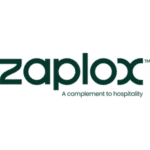 Much of the current discussion on staffing for the hospitality industry focuses on recruitment and skill shortages. It can seem that this is always been the case but there are indicators to suggest the situation is worse now than it has been in the past. Key indicators, including the sheer scale and size of the tourism and hospitality industry, its growth over the recent decades and it’s avaricious appetite for staff, have moved those discussions further and further to the top of the agenda.
Much of the current discussion on staffing for the hospitality industry focuses on recruitment and skill shortages. It can seem that this is always been the case but there are indicators to suggest the situation is worse now than it has been in the past. Key indicators, including the sheer scale and size of the tourism and hospitality industry, its growth over the recent decades and it’s avaricious appetite for staff, have moved those discussions further and further to the top of the agenda.
The economic basis of the need for staff is self-evident, but what is also clear is that the current supply of staff is not meeting their economic need. Is it now time to think differently and more radically about staff and how employees should have a greater role as stakeholders?
Employers like to think that they can develop and expect loyalty from the employees, but loyalty to an employer doesn’t come with a pay packet – it comes from trust, confidence shared values and expectations. This loyalty can only come from a direct engagement with the business that creates a sense of ownership and pride both in the business and the service it provides to its customers. Loyalty is not encouraged by employee models based entirely on payment systems, such as zero hours contracts, but with a reward system that includes a much wider range of benefits.
The economic and social pressures on the industry suggests that the existing corporate business structures are under threat. That threat is not just from popular environmental and ethical movements, but from guests who have a choice as to the type of establishments that they choose to patronise. Interestingly even major investors, including insurance companies and banks, are now beginning to question and vote against excessive executive pay deals. There is evidence that excessive senior executive pay has an impact on customers perception on the values of that company. The differentials between employees and senior executives can exceed 100 times, yet the CEO is worth nothing without key employees. It is these well-publicised excesses that question the very structural business model of share ownership, where share ownership is seen as purely a means of investment against a projected return, rather than an investment in the values, aspirations and future of the business.
Why do businesses that encourage greater employee engagement ensure a more rewarding working environment, greater loyalty, lower turnover and longer retention rates? The obvious answer is that the employees feel they have a greater stake and sense of ownership, not just in the business of today, but also of the future.
One model is the Employee Ownership Model, where staff themselves directly hold shares in the the business. The shares are either owned individually by the employees or on their behalf through an employee trust. The biggest selling point of this type of approach is that this fosters a sense of employee engagement which in turn leads to better business performance. Emotional connection with the business is a powerful motivator and provides a much greater reward than just a pay packet. There is research evidence that suggests firms with this type of employee engagement through share-ownership enjoy a greater sense of job satisfaction and achievement and that consumers see these types of businesses as more trustworthy, significantly influencing their purchase decisions.
This approach is not ‘one size fits all’, but reflects the way in which the relationship between the business and employees is beginning to change. There are many variations that could be considered, but it is this more radical consideration that can lead to significant business benefits. Not just those of employee engagement, greater retention and a positive sense of ownership, but in the economic and financial benefits through improvements in productivity and performance arising from that sense of ownership. Research conducted by the Cass Business School suggests that employee ownership businesses in the UK grew sales by over 11% during the recession compared to just 0.6% for industry as a whole.
The industry is not going to solve its staffing problems overnight, but it should now look much more radically at ways of fostering greater employee engagement. Staff are the key stakeholders in the business and giving them a greater stake is just plain common sense.
One of the most memorable advertising slogans of the recent decades was” The future is bright, the future is Orange”. For the hospitality industry that could read “the future is bright, the future is employee engagement”.


















